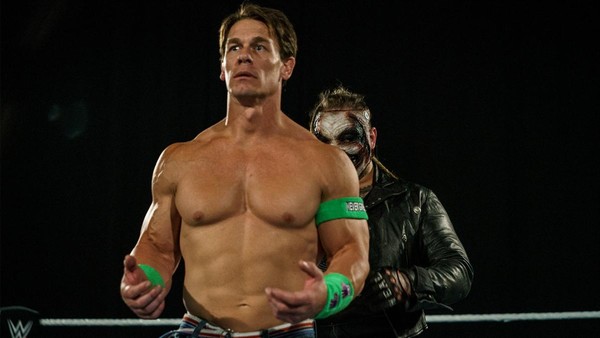Explained: THAT Firefly Fun House Match From WrestleMania 36
14 years in the making.

That thing on Sunday night, whatever it was, was a masterpiece. And yet, The Fiend is awful in every context that does not involve Daniel Bryan. So what gives?
Bear in mind, too, that this was meant to be awful. This was a Fiend match directed by the company that brought you WWE Studios. It wasn't awful. This was a masterpiece - a new medium of pro wrestling perfected instantly, an achievement on the level of Hell In A Cell. But this wasn't a groundbreaking match - rather an inconceivable shift in mentality in which WWE held a mirror up to itself and retched at the reflection.
This surreal mind-f*ck echoed the finale of the second season of Twin Peaks. The Firefly Fun House was the Black Lodge in which John Cena fought - and was defeated by - his shadow self. There was a Jungian psychology to this outrageous professional wrestling theatre. The reduced version of the theory is thus: beneath every conscious mind lies the shadow self, which is undesirable, awful, and thus suppressed; a great negative force. The conscious mind cannot bear to acknowledge what is, all the same, a part of them. The shadow self is obscured by personality traits that project onto others that which the conscious mind will deny to itself.
John Cena is gigantic buffoon of a man who buried everybody for years because he is the d*ckhead.
CONT'D...(1 of 5)